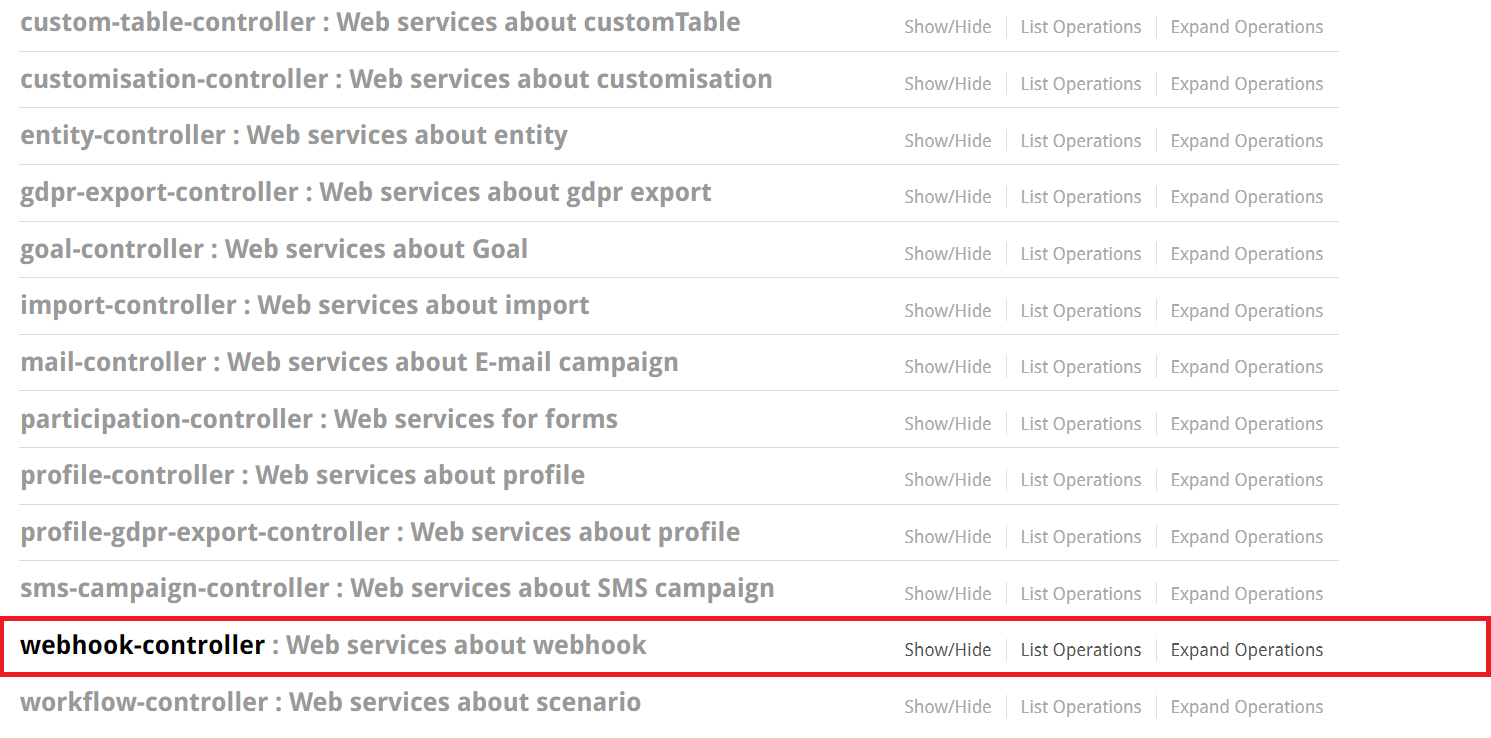Webhooks
ACTITO's aim is to offer you a wide range of connectivity options in your marketing approach. Consequently, we particularly want to enable the exchange of data between ACTITO and other systems related to your activity.
Several solutions allow you to directly interact with ACTITO without having to go through the interface. Webservices already allow you to call data recorded in ACTITO and submit data to ACTITO.
The introduction of Webhooks gives you the reverse service in comparison to Webservices. It is no longer necessary to make a call every time you need a piece of information. Webhooks are in fact listening to the information. By subscribing to Webhooks, the later allow you to be directly notified when specific events occur on a profile or a custom table entry. These events will be communicated to an URL that you will have to specify.
Context
Affected events
Webhooks allow you to get notified about events revolving around profile tables and custom tables of the data model.
These events can be of the following nature:
CREATE: Allows you to get notified for each profile creation or each new data record
UPDATE: Allows you to get notified for each modification on a profile or data record. It is possible to specify exactly which field of the table must be taken into account
DELETE: Allows you to get notified every time a profile or a record is deleted
UPDATED_SEGMENT and UPDATED_SUBSCRIPTION: These events are specific to profile tables. They allow you to get notified for every subscription and segmentation modification
Good to know
For custom tables, events must be defined in the JSON definition file of the custom table (in the "tableEventDefinition" parameter).
Protocol
When ACTITO records a event that matches the definition of the Webhook subscription, the Webhook will submit the information to the URL that you specified.
One call will be created for each event.
Access
To receive notifications every time an event occurs in the table to which you are listening, it is necessary to create a subscription to a Webhook. A Webhook subscription must be created for each event and each table to which you are listening.
Creating and managing these subscriptions can be done through the ACTITO APIs. Their definition is available on the technical documentation, at the same place as every other API method:
TEST environment: https://test.actito.be/ActitoWebServices/doc/index.html
PROD environment: https://www.actito.be/ActitoWebServices/doc/index.html
The creation of a Webhook subscription and managing existing subscription is done in the 'Webhook Controller' category, no matter the type of table to which the Webhook is listening.

